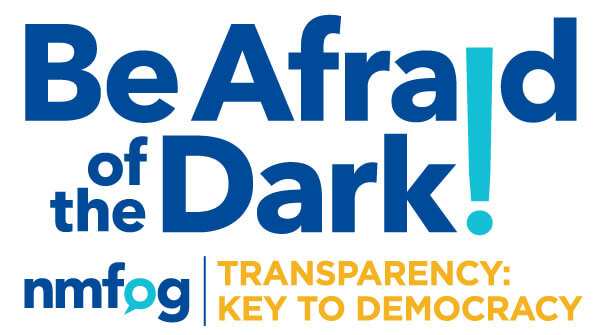By Kent Walz
Transparency issues often focus on elected bodies and whether they follow the law governing public meetings, or executive agencies and whether they comply with statutes like the New Mexico Inspection of Public Records Act.
Important questions, to be sure. But a judicial system that is open and accessible to the public is every bit as important, or perhaps more so, when we consider its role in a functioning democracy. It is the courts, after all, that arbitrate disputes on access issues involving other branches of government. And it is the courts and jury system that resolve civil disputes and ultimately decide whether criminal conduct merits the deprivation of liberty.

Chief Justice Michael Vigil of the New Mexico Supreme Court shared some thoughts on the matter earlier this month.
“New Mexico courts recognize the critical importance of allowing the public to see and hear for themselves how our justice system fairly and impartially resolves legal disputes,” he said. “Without that transparency and access, we risk an erosion of public confidence in the rule of law and trust in our independent judicial branch of government. Our democracy depends on maintaining that public confidence and trust.”
Given the openness of New Mexico’s court system, which as far back as the 1980s had the foresight to allow photography and televising of court proceedings it would be easy to take for granted that the judicial system here and elsewhere has always operated in this fashion.
And that would be wrong.
The term “star chamber” remains part of our current day lexicon and refers pejoratively to any secret or closed meeting by a judicial or executive body. Rooted in English history, the Star Chamber was well intended but came to abuse its powers, using torture to obtain confessions and meting out sentences that included whipping, pillory, prison and mutilation, according to the First Amendment Encyclopedia. Jurors were sometimes punished for finding verdicts against the Crown and King Charles I used the Star Chamber to crush opposition to his policies.
It’s not beyond the pale to image some politicians, if given free rein, would find this a useful tool.
The Star Chamber was abolished by Parliament in 1641 and historically many court proceedings in this country were open. But it wasn’t until 1980 in a case called Richmond Newspapers Inc. v. Virginia that the United States Supreme Court ruled that the First Amendment generally prohibits closing criminal trial proceedings to the public. The underlying case was a high-profile murder prosecution and the court’s plurality opinion noted, correctly, that secrecy… “limits the stock of information from which members of the public may draw.”
The right for the public to attend isn’t absolute, but to close a criminal case courts must exhaust all reasonable alternatives and make specific findings as to why closure is necessary. We all just witnessed first-hand how the justice system works in real life with the Derek Chauvin prosecution in Minneapolis. Imagine how damaging it would have been to the system if this had been done in secret. The U.S. Supreme Court would be well served to adopt the same procedures in the federal system to allow photography and broadcasting.
New Mexico’s state court system has gone above and beyond in providing access to both criminal and civil cases. Even during COVID, “our courts expanded their use of technology to ensure members of the public could view and listen to proceedings conducted by video and telephonic conferences,” Vigil said. “When courts conducted jury trials, they were required to provide a way for the public and press to witness what happened even if there was no space in the courtroom because of the need for physical distancing and to follow other COVID-safe practices.”
The state Supreme Court has broadened public access through technology by livestreaming oral arguments, including in high profile cases involving elections and the state’s public health emergency orders. The state’s judiciary also has added a YouTube channel with videos, including self-help information to assist people representing themselves.
And the state judiciary has embraced social media, posting notices on Twitter about court orders, opinions and other critical information.
We may not always agree with court decisions. But we should all be able to agree that the rule of law is essential to our democratic system and that, as Vigil said, secrecy can only lead to an erosion of trust in the rule of law.
Louis Brandeis is often cited for his “sunshine is the best disinfectant” quote, which he wrote before he was appointed to the U.S. Supreme Court.
But according to research by the Sunlight Foundation, he had been thinking for a while about the notion that “the wickedness of people shielding wrongdoers & passing them off (or at least allowing them to pass themselves off) as honest men.”
His proposed remedy? “If the broad light of day could be let in upon men’s actions,” he wrote, “it would purify them as the sun disinfects.”
It was true then and it’s true now. And it is every bit as important to our democratic system that these principles apply not just to the executive and legislative branches, but to the judicial branch as well.
Kent Walz is a former president of the New Mexico Foundation for Open Government. He is a recipient of FOG’s Lifetime Achievement award. This guest column is part of FOG’s Transparency: Key to Democracy Project. Accountability ensures that government is held responsible to the citizenry; transparency gives the public the right to access government information and requires that decisions and actions made by the government are open to public scrutiny and occur in the light.
